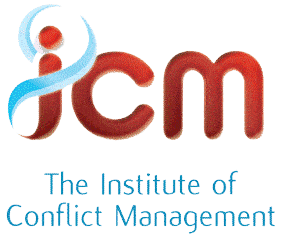
Restraint Training for Schools in Ireland
Dynamis delivers training for your team (both online and in-person) which covers the specific topics required to carry out Positive Handling in Irish Schools.
A small selection of schools in Ireland who have benefitted from our training:
Our training covers a variety of the most common scenarios which staff in school face when they must deal with behaviour or risk, and gives straight answers to frequently asked questions.
One Full Day: For schools who can set aside the time, this option gives your staff the most practice time and question/answer time with the trainers about the decision-making framework for physical interventions. Assimilation of the legal ‘rules’ and long-term retention of the physical skills is best with this duration of contact time. Be aware though that In-Service days are often booked LONG in advance! It is prudent to consider the Twilight options below also.
*For Schools who look after children with complex needs, additional days of training may be required, for example more in-depth Conflict Communication and Crisis Training, Breakaway Training or more comprehensive Restraint Interventions training.
Half Day or Twilight sessions: We are finding that many schools want the training as soon as possible, without needing to book a full In-Service day. This convenient Half-day or Twilight option blends online learning with an in-person training session and can be booked on any convenient date.
Your team are engaged by pre-course study of 4 Units of our highly-developed Decision-Making Framework using our online learning system. Our trainer then visits with you to complete the training with Q&A and physical skills development, taking about 3 hours in the AM, PM or Twilight, at a time which is convenient and expedient for you.
Additional Staff: Schools can add as many learners as necessary to either of the above programmes, extending to whole-school if needed, by prior arrangement.
IPPN Position Statement:
https://www.ippn.ie/images/IPPN_Submission-Use-of-Physical-Intervention_Final.pdf
Non-Fatal Offences Against the Person Act, 1997
http://www.irishstatutebook.ie/eli/1997/act/26/enacted/en/print#sec2
Health and Safety at Work Act 2005
http://www.hsa.ie/eng/Topics/Managing_Health_and_Safety/Safety,_Health_and_Welfare_at_Work_Act_2005/
Excellent Classroom Behaviour Management guidance for teachers working with children who display challenging behaviour:
Guide to Managing Challenging Behaviour: http://www.into.ie/NI/INTOStudentCentre/StudentPublications/Guide_managing_challenging_behaviour.pdf
Developing a code of Behaviour for Schools: http://www.into.ie/ROI/InfoforTeachers/BehaviourandDiscipline/CodesofBehaviour/guidelines_school_codes_eng.pdf
The Irish News - 25 May 2021
ASSEMBLY members have demanded urgent new guidance on restraint and seclusion of school children - particularly those with additional needs.
The use of both practices on vulnerable pupils and those with special educational needs was debated yesterday.
A motion, which secured cross-party support, was drawn up by education committee chairman Chris Lyttle of the Alliance Party.
It followed evidence heard earlier this year from mother Deirdre Shakespeare, from the Harry's Law campaign, who said she only realised how much her son was being restrained at his special school after seeing a photo diary.
The committee was told that 20 primary-age children reported injuries allegedly caused by restraints used in schools. Many were non-verbal and parents reported physical injuries including bruising, scratches from Velcro and, in one case, multiple abrasions from being dragged.
Harry's Law would make it compulsory for schools to report to parents and the Education Authority when they restrained or isolated a pupil.
The committee's motion called on Education Minister Peter Weir and his department to urgently develop new guidance.
It noted concern at the lack of statutory guidance from the Department of Education on the use of restrictive intervention, particularly on those with physical or learning disabilities.
Members demanded that Mr Weir develop and introduce "up-to-date statutory guidance on therapeutic-based, non-aversive, positive behaviour strategies".
They are also seeking funded mandatory training for all staff working directly with young people, statutory guidance on restraint definitions as well as "last resort definitions, and human rights based guidance in line with the United Nations Convention on the Rights of the Child".
There should also be mandatory recording and reporting of all incidents of restrictive intervention and the abolition of isolation rooms, the assembly heard.
Mr Lyttle said the existing guidance was more than 20 years old and did not reflect present-day protections for children's rights nor the inclusion of alternative practices that had been adopted successfully by other jurisdictions.
"We fully recognise the difficulties faced by teachers and school staff in dealing with these situations. It is crucial that they are provided with a clear direction by the department and with the time and appropriate training to acquire the necessary understanding and skills to deal effectively and sensitively with children and young people with additional support needs," he said.
"While examining this issue in recent months, we have heard many harrowing and indeed devastating stories from the parents of children and young people who have been subjected to current restraint and seclusion practices. The life, happiness and potential of their children is at the very heart of this issue and we commend them for their determination and bravery in telling their stories. As public representatives we must do everything possible to ensure that other children do not suffer the same experiences in the future."
Sinn Féin MLA Pat Sheehan spoke about an incident in which a child was tied to a chair with their own school bag.
“The measure of a society is how it caters for its most vulnerable," he said.
"We need to ensure there is oversight and accountability."
Mr Weir said progress was being made and added that he shared the concerns of members.
"Such treatment is wrong and should not have happened," he said.
https://www.irishnews.com/news/northernirelandnews/2021/05/25/news/education-committee-calls-on-minister-to-urgently-develop-new-guidance-on-restraint-and-seclusion-2333157/
The Irish News - 11 May 2021
FORCE should only be used against pupils as a measure of last resort, schools have been warned.
The Department of Education has published interim guidance on restraint and seclusion.
The use of both practices on vulnerable children and those with special educational needs is to be debated by the assembly.
A motion, which has cross-party support, has been drawn up by education committee chairman Chris Lyttle of the Alliance Party.
It followed evidence earlier this year from mother Deirdre Shakespeare, from the Harry's Law campaign, who said she only realised how much her son was being restrained at his special school after seeing a photo diary.
The committee was also told that 20 primary-age SEN children reported injuries allegedly caused by restraints used in schools.
Many were non-verbal and parents reported physical injuries including bruising, scratches from Velcro and, in one case, multiple abrasions from being dragged.
Harry's Law would make it compulsory for schools to report to parents and the Education Authority when they restrained or isolated a pupil.
The newly-published guidance says "settings are being reminded that reasonable force/restraint should only be used as a measure of last resort".
"All instances should be recorded, parents/carers should be informed and follow-up support provided to the pupils and staff involved."
The department is undertaking a review which will examine the issue of seclusion, including deprivation of liberty.
"Children should never be locked in a room or left unaccompanied and must be able to leave when they want to," a spokesman said.
"Any changes will be subject to ministerial approval and it is expected that new guidance will issue later this year."
“The SNAs responded really positively to the First Responder Philosophy. Every group loved that idea of putting into a ‘flow’ the methodology of how to be the first person to deal with an incident that could be risky. The SNAs liked that because we give them a structure, a flow, and from there they feel protected because you're giving them something they can use, both in the moment and in articulation and explanation afterwards.” - Alex, Specialist Dynamis Trainer for Schools in Ireland
“The Department of Education and Skills should issue clear guidelines to schools regarding realistic and appropriate measures to be taken to contain children during episodes of violent behaviour. These guidelines should be based on evidence of international best practice in working with children with severe emotional and behavioural difficulties and should specifically address when it is appropriate for teachers and SNAs to use restraint and a time-out room.”
Teresa Griffin*
CEO, National Council for Special Education :: An Chomhairle Náisiúnta um Oideachas Speisialta (2012)
* NCSE does not endorse any single provider, methodology or system of training and has no opinion in relation to the provision of this training.
Feedback from Learners About Our Training
Thousands of learners with Dynamis Since 2006
Course Met or Exceeded Expectations
Trainer Was Very Good or Excellent
Training was Relevant and Appropriate
HI! I'M GERARD O'DEA
Director Of Training At Dynamis
Hi and thanks for visiting our website today.
In over 15 years of working with frontline staff who face difficult, distressed and dangerous behaviour, i have seen time and again how prepared staff can perform well and respond to challenging circumstances.
From teachers to nurses, teaching and care assistants to security officers in our hospitals and social workers in the community, if you deal with people every day, managing conflict becomes a necessity.
I became involved in this work because i saw the power of training and preparation in helping people to stay safe at work and to be more successful in working with their colleagues to create better outcomes.
I and my team of professional trainers now teach in over 200 training engagements every year around the uk and internationally for a wide variety of public-facing organizations just like yours.
We have sought out the best conflict management training content and the best learning methods in the world and bring them together for you and your team.

How is Dynamis Positive Handling training different?
As a pioneer in using online training for positive handling we understand how to get the best out of this format, for your busy school and your in-demand staff!
Uniquely flexible to your needs
With no less than 5 different formats for each course we deliver, we work hard to fit into your schedule, your budget and your work - your partner in behaviour management and positive handling.
dedicated to authentic learning
Through our collaboration with Loughborough University faculty, we design and deliver training which has the highest degree of transfer to your working environment.
trauma-informed and responsive
Through our partnership with NAOTP we are committed to being trauma-aware as a team and our problem-solving approach recognises 'all behaviour has meaning'.
Scenario-Driven
Your staff need skills and knowledge which will help you with YOUR specific children and behaviours, so our approach is focused on solving YOUR positive handling issues. See SCENA for more information.
““There is real value for the group - to really affect the most positive change for those children who need the structure, the stability and professional responses - the stable and known responses from the adults in the school - that requires everybody to be on board. After training, there will be varying degrees of skill, some staff will take to the tactics like ducks to water, others will find it more difficult, but it will nevertheless be important for everyone to have an understanding of ‘what are our core common purposes here?’; the principles and the values of why we’re doing it this way.”” - Heidi, Specialist Dynamis Trainer for Schools in Ireland
Popular and Proven for Positive Handling
Our Positive Handling training reduces injury risk, improves inspection compliance and safeguards staff, children and your school’s reputation.
We are an Institute of Conflict Management (ICM) Quality Award Centre (#2201) for the delivery of conflict and interventions training.
We achieve this using a robust Positive Handling decision-making framework based on all the relevant legislation and National Guidance for Positive Handling, coupled with a modern, pragmatic approach to the holding and containment of children whose behaviour might harm themselves or others.
We deliver a relevant Positive Handling training course for your team at your school or service, on dates of your convenience.
Once your team understands their legislative position and the best-practice guidance relevant for restraint training for schools in Ireland, we will explore appropriate and effective methods for school staff to use in managing challenging behaviour which carried the risk of serious harm:
I found the course very informative & l am confident with the techniques & tactics, should l have to use them in future scenarios. The theory gave a clear & extensive understanding of the legislation around restraint, policies , safety & the rights of the child & the employee.
The two key elements of positive handling
Your staff are guided through 12 key decision-making factors which are fundamental to good practice in the area of Positive Handling. This Online Learning component may be particularly helpful for schools who have unnecessarily booked Whole-School training in the past.
… WITH A SCENARIO-LED TRAINING EXPERIENCE…
Our trainer will then lead your staff through the verbal models for conflict communications and the physical Positive Handling tactics they may need at the higher levels of risk in practical sessions where repetition and embedding the skills is our aim.
LEARNING OUTCOMES FOR POSITIVE HANDLING TRAINING:
YOUR STAFF WILL EXPLORE AND DEVELOP AN UNDERSTANDING OF:








Our Partners and Accreditation

MEMBER OF THE INSTITUTE OF
CONFLICT MANAGEMENT
Dynamis is a Quality Award Centre with the ICM, a recognised accrediting body in the U.K. for workplace training in the prevention and management of workplace violence.

EUROPEAN PARTNER FOR
VISTELAR
Dynamis is the premier European Partner for Vistelar, a global consulting organisation covering training across the entire spectrum of human conflict.
REGIONAL REPRESENTATIVE FOR 9 ATTITUDES BEHAVIOURAL TACTICS
Dynamis represents the 9 Attitudes system, a fully behavioural approach to self-protection and physical control which is based on the observable realities of physical confrontation.